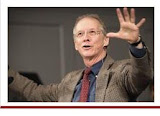Abortion is not an option when in doubt
>> Wednesday, December 15, 2010
Hello all!
Some of you may recall a post of mine from a while back (relying heavily on an article by E. Christian Brugger) titled “Public Discourse: The Ethics of Fetal Pain”. The most basic premise of my comments and Mr. Brugger’s article could be summed up something like this. “When in doubt don’t kill or torture the fetus, otherwise known as a baby, because there is no justification for abortion in the face of doubt”.
I found another article today, titled “A Chance Worth Fighting For” by Timothy Dalrymple, in which the author cites Erwin Schrödinger’s “Copenhagen" interpretation of quantum mechanics to draw the following conclusion that would affirm mine and Mr. Brugger’s contention:
“I present this thought experiment because my most fundamental question concerning abortion is: whether or when abortion is the destruction of a human life? Yet I cannot find a definitive answer to the question of when human life begins in the womb, and I suspect many on both sides, if honest, would confess the same. What do we mean by human and life? What if human life does not begin at any discrete moment, or when is a life sufficiently human to claim special moral value?
I sympathize with the distraught young woman who stands before the trials of motherhood, and it is difficult to contend that she should face them for a six-week-old fertilized embryo. Yet I cannot see the dismembered bodies of late-aborted fetuses, or the videos of fetal activity in the midst of abortion procedures, without feeling as though we have gone horribly wrong. If no leaf changes without the silent knowledge of the tree (Kahlil Gibran), we are all responsible for the least of these.
Yet the "indeterminacy" of the beginning of life works in favor of pro-lifers. The mere chance that abortion is the destruction of human life, or of nascent human life of high moral worth, is enough to stand against it. Why should we accept in the mysterious confines of the human body what we would not allow in front of our eyes?”
I won’t lie. I find abortion appalling and believe God does as well. However, I don’t view all people who believe abortion as acceptable and/or that it should be legal in the same light. Some people are honestly convinced that a “fetus” is not human, a view particularly common among products of a thoroughly humanist educational system. I believe this view to be horribly misguided scientifically and logically, and I would do my utmost to persuade them of their error. However, this is a human mistake common in our deceived times, and I would be slow to condemn these people too quickly or too harshly.
There is another category though. This one is comprised of people who are not convinced of the soundness of abortion scientifically, morally or logically, but because society allows it and it is convenient they are willing to support abortion. This group is tragically and reprehensibly confused, beguiled and assuaged by a deadly combination of self indulgence and willful ignorance.
Is there a defense for such individuals?
Ironically, I don’t see why an abortion advocate from the first category mentioned in this post would disagree with my premise.
Advocates of abortion tout “women’s freedom” and “reproductive rights” as grounds for legalized abortion, but this view is justifiable only if you believe an unborn child is simply a “fetus”. If you are not convinced of this, what justification is there for abortion? Are “reproductive rights” in anyway comparable to life itself when the two are weighed against each other?
I believe they most certainly are not which is why, in part, I so strongly believe that the presence of even the slightest doubt concerning whether or not a fetus is a human should take the “option” of abortion completely off the table for a person with a sound moral compass.
God bless and veritas supra omnis! Read more...









